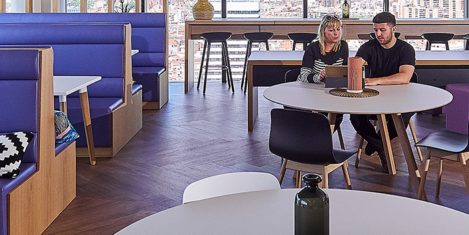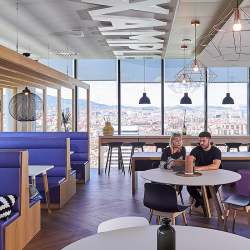To provide the best experiences, we use technologies like cookies to store and/or access device information. Consenting to these technologies will allow us to process data such as browsing behaviour or unique IDs on this site. Not consenting or withdrawing consent, may adversely affect certain features and functions.
The technical storage or access is strictly necessary for the legitimate purpose of enabling the use of a specific service explicitly requested by the subscriber or user, or for the sole purpose of carrying out the transmission of a communication over an electronic communications network.
The technical storage or access is necessary for the legitimate purpose of storing preferences that are not requested by the subscriber or user.
The technical storage or access that is used exclusively for statistical purposes.
The technical storage or access that is used exclusively for anonymous statistical purposes. Without a subpoena, voluntary compliance on the part of your Internet Service Provider, or additional records from a third party, information stored or retrieved for this purpose alone cannot usually be used to identify you.
The technical storage or access is required to create user profiles to send advertising, or to track the user on a website or across several websites for similar marketing purposes.
 With the average number of days lost to ill health per employee at 5.2 days, there’s a clear impact on business, which is why firms must better prioritise the health & wellbeing of their staff. That’s according to new survey results from the CBI, in partnership with Bupa and HCA Healthcare. In a new guide, Front of Mind: Prioritising workplace health & wellbeing, 347 businesses – employing nearly 1.7 million people – of all sizes across the UK were surveyed or interviewed to understand what steps they are taking to improve workplace health & wellbeing.
With the average number of days lost to ill health per employee at 5.2 days, there’s a clear impact on business, which is why firms must better prioritise the health & wellbeing of their staff. That’s according to new survey results from the CBI, in partnership with Bupa and HCA Healthcare. In a new guide, Front of Mind: Prioritising workplace health & wellbeing, 347 businesses – employing nearly 1.7 million people – of all sizes across the UK were surveyed or interviewed to understand what steps they are taking to improve workplace health & wellbeing.

































June 28, 2018
Ten demonstrable truths about the workplace you may not know
by Kerstin Sailer • Comment, Facilities management, Features, Workplace design
(more…)